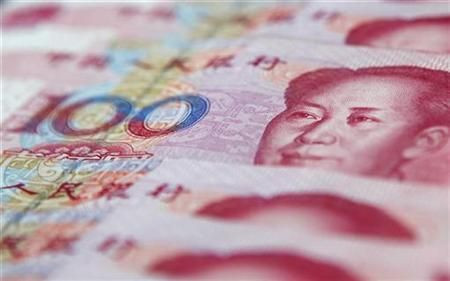Pressure On Price Declines In China, Room For More Easing Measures

The rate of inflation in China slowed down in October compared to the previous month, showing signs of a gradual decline in price pressure to provide scope for monetary easing.
The diminishing inflation should be good news for China because it can help the government invigorate growth without much concern about the rising prices. The data from the National Bureau of Statistics show that China’s consumer price index, which measures the change in the price of goods and services from the perspective of the consumer, rose 1.7 percent in October from a year earlier, down from 1.9 percent in September.
China’s producer price index, which measures the change in the price of goods sold by manufacturers, decreased 2.8 percent in October on annual basis, following a 3.6 percent decline in September.
Market players sense that there is need for urgent easing measures with China's gross domestic product growth slowing down to 7.4 percent in the third quarter, down from 7.6 percent in the second quarter, due to the soft global demand and reduced real estate investment in the world's second largest economy. The government has already lowered its economic growth target in 2012 to 7.5 percent. In 2011 and 2010, the economy grew at the rate of 9.2 percent and 10.4 percent respectively.
Notably, earlier this year, the World Bank reported that China's export-and-investment-driven economic model, though successful for decades, was no longer sustainable and reforms were needed to prevent a sudden slump in growth. The World Bank said that the country's economic growth would slow down to 5 to 6 percent annually by 2030 and a major overhaul would be needed to sustain even that level.
The data on inflation come after it was reported last month that China's manufacturing activity expanded in October after two months of contraction, giving indication that the second-largest economy is reviving its growth momentum. The data released last month by the China Federation of Logistics & Purchasing showed that the Purchasing Managers' Index rose to 50.2 in October from 49.8 in September. Significantly, the index moved into the expansion zone, a reading above 50. The expansion of the manufacturing activity should allay fears of a sharp retardation in the Chinese economy.
The decrease in inflation has raised the hopes that China will further cut the cash reserve ratio. Inflation may no longer be the main concern of policymakers, and the government may have more space to loosen monetary policies and make supporting economic growth a priority. Instead of fighting inflation, the most urgent priority for China appears to be the pro-growth policy stance against the current uncertain global situation.
© Copyright IBTimes 2024. All rights reserved.





















